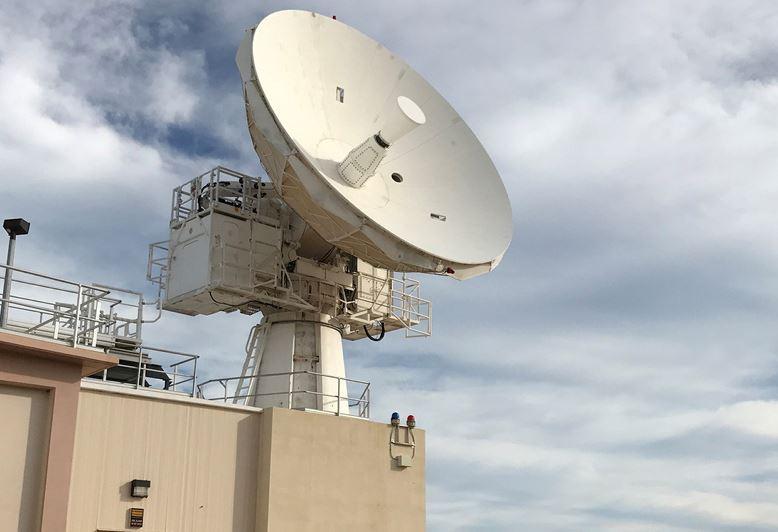Keep looking up: Australia’s next steps in space surveillance
Posted By Malcolm Davis on March 2, 2022 @ 12:15

Australia’s role in critical space domain awareness (SDA) is becoming a major mission for the defence force. Australia has long provided a ‘suitable piece of real estate’ as part of the Five Eyes intelligence-sharing community and through the 2014 Combined Space Operations initiative. The continent lies directly beneath launch trajectories from Chinese launch sites and is well located to monitor activities out to geosynchronous equatorial orbit (GEO), 35,786 kilometres from earth. Inland, the sparsely populated landmass offers skies largely free from light pollution, and while weather will always be a factor—ground-based optical telescopes can’t see through cloud—Australia is better placed to undertake the SDA mission than most other locations.
The United States has relocated a C-band space surveillance radar and a large space surveillance telescope [1] to the Northwest Cape region near Exmouth in Western Australia as a hosted joint facility [2] that will be operational this year. SDA is part of the Australian Defence Force’s Operation Dyurra [3], which integrates space capabilities, services and effects into wider operations, and is further integrated into the US-led Operation Olympic Defender [4] providing global space surveillance of potential threats within America’s space surveillance network.
Australia’s Defence Department is seeking to expand sovereign SDA capabilities with a major project, JP-9360 [5], and released an SDA roadmap in July 2020. That plan consolidates individual projects to provide a more cohesive and connected but distributed and multilayered approach to SDA. The first tranches will be delivery and introduction of a telescope.
In tranche 2, a ground-based network of optical sensors will be deployed across Australia, with different types of sensors providing enhanced and expanded space surveillance beyond the Exmouth-based telescope. Approval for this work is expected in late 2022. An example of what it might include is the laser-optical system demonstrated by Australian company EOS Australia [6] from facilities at Mt Stromlo near Canberra and from Learmonth in Western Australia. Lockheed Martin, in partnership with Curtin University, has demonstrated the FireOPAL sensor network [7], offering a low-cost distributed system for comprehensive ground-based space surveillance.
What’s next? A logical approach would be to complement ground-based optical sensors with additional systems operating in other wavelengths, such as radar or infrared, and then locally develop and deploy space-based space surveillance satellites.
Space-based space surveillance offers advantages over ground-based sensors. Apart from some specialised technologies, most ground-based sensors, particularly those operating in the optical part of the electromagnetic spectrum, don’t work very well in daylight so surveillance is limited to dusk, nighttime and just before dawn. And, again, weather can impede the effectiveness of ground-based optical sensors, even at nighttime.
Satellites orbit beyond the effects of terrestrial weather, and in space there’s no daytime or nighttime to interfere with surveillance. From orbit, a satellite can observe a target of interest or survey activity in its field of view across a range of orbits and trajectories. Adelaide-based Inovor Technologies is already developing small satellites under Project Hyperion [8] that will be based in low-earth orbit to observe satellites, space debris and other activities in medium-earth orbit (MEO) and out to GEO.
Inovor notes that its satellites can observe any GEO object from multiple vantage points simultaneously to help identify it. Hyperion’s ability to have ‘persistent custody’ of any GEO or MEO object of interest will improve observation of the space environment and monitoring of suspicious activity and will better support missions such as a rendezvous for servicing in orbit.
The potential offered by space-based space surveillance also extends to close approach operations to examine a target in detail. Such rendezvous and proximity operations need to be managed carefully and carried out consistent with space law. International diplomatic efforts are underway to define what constitutes responsible behaviour in space, including in rendezvous and proximity operations. Australia is fully engaged in this dialogue via a UN open-ended working group [9] established late last year following the tabling of UN General Assembly resolution 75-36 [10] by the United Kingdom.
Australia’s approach to SDA needs to be consistent with international law, so care must be taken in shaping ADF capability to ensure all activities meet standards of responsible behaviour. The increasingly complex and congested nature of space and the real challenge posed by adversary counterspace capabilities [11] mean that Australia has an international responsibility to contribute to effective SDA. Moving from a purely ground-based system to a more sophisticated combination of space-based and ground-based space surveillance capabilities makes eminent sense. By taking this approach, the ADF will be best placed to contribute towards effective SDA as part of the Combined Space Operations initiative and, more broadly, at an international level to ensure responsible behaviour in space.
The new Defence Space Command should take an ambitious and forward-looking approach to the SDA mission, and it needs to move relatively quickly to field new capabilities. Space is an area in which force development and capability acquisition can occur relatively quickly, especially if the government is willing to support small and medium enterprises in Australia’s commercial space sector.
SDA opens real potential for Australian companies to contribute valuable sovereign capability for the ADF that doesn’t necessarily rely on overseas primes and give added momentum to the growth of Australia’s space sector. It’s important for the government to keep looking up, and to help Australian businesses provide capability solutions for vital defence tasks.
Article printed from The Strategist: https://aspistrategist.ru
URL to article: /keep-looking-up-australias-next-steps-in-space-surveillance/
URLs in this post:
[1] large space surveillance telescope: https://www.minister.defence.gov.au/minister/lreynolds/media-releases/space-surveillance-telescope-captures-first-images-space
[2] hosted joint facility: https://news.defence.gov.au/media/media-releases/space-surveillance-telescope-building-handover
[3] Operation Dyurra: https://www.defence.gov.au/operations/operation-dyurra
[4] Operation Olympic Defender: https://www.airforcemag.com/article/building-the-new-space-coalition/
[5] JP-9360: https://www.australiandefence.com.au/defence/cyber-space/defence-rethinks-space-surveillance-roadmap
[6] EOS Australia: https://www.eos-aus.com/space/space-domain-awareness/
[7] FireOPAL sensor network: https://www.lockheedmartin.com/en-au/products/space-domain-awareness.html
[8] Project Hyperion: https://www.inovor.com.au/space-technology/hyperion-mission/
[9] open-ended working group: https://meetings.unoda.org/section/oewg-space-2022_documents_17009/
[10] resolution 75-36: https://undocs.org/en/A/RES/75/36
[11] adversary counterspace capabilities: https://www.iiss.org/blogs/research-paper/2022/02/military-ambitions-and-competition-in-space-the-role-of-alliances
Click here to print.